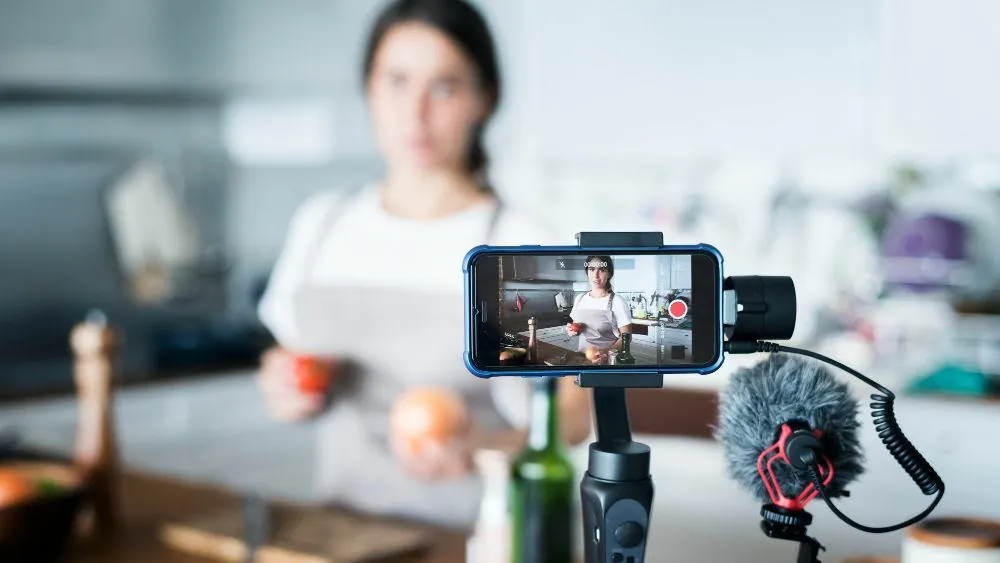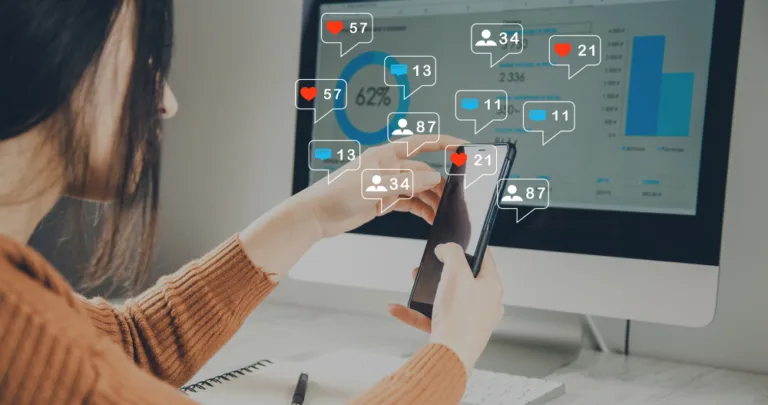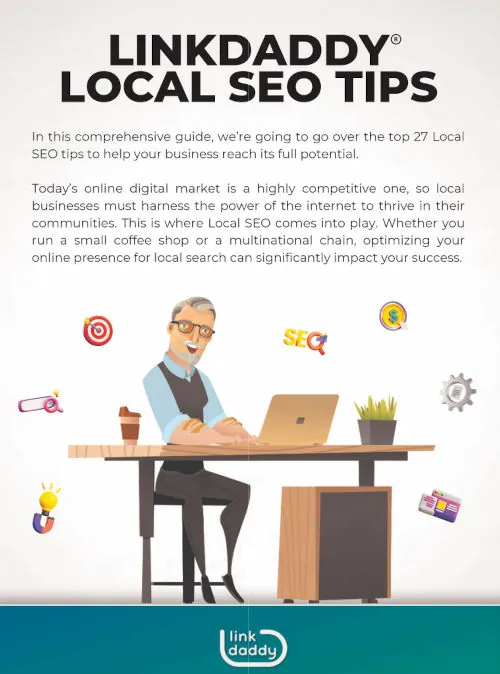
Businesses are pouring more resources into marketing strategies that aim to connect with the ever-growing online audience. One such strategy is influencer marketing, which has seen a surge in popularity in recent years and can be seen as a subset of social media marketing.
Influencer marketing refers to the use of individuals who have a significant following on social media to promote a product or service. These individuals, also known as ‘influencers’, have an established community of users who trust their opinions and views. This can make the process of promoting products or services to the influencer’s followers more effective and authentic.
Social media has revolutionized the way businesses market their products and services, and the importance of this medium in digital marketing cannot be overstated. It has provided a platform for businesses to interact with their customers in real-time and gauge their interests and preferences. It has also allowed them to tailor their marketing efforts to a specific audience and increase their reach through targeted advertising.
The use of influencer marketing has gained immense traction in recent times due to the power of social media and its influence on consumer behavior. The rise of influencers has allowed businesses to reach a wider audience and increase their visibility, leading to improved brand recognition and increased sales.
In this blog, we will delve deeper into the world of influencer marketing and explore its relevance to businesses. We will examine the different types of influencers, their role in promoting products and services, and the benefits that businesses can reap from influencer marketing. This comprehensive guide will help businesses understand how they can harness the power of influencer marketing to boost their brand’s visibility and reach out to a wider audience. So, stay tuned!
Understanding Influencer Marketing
In the world of digital marketing, one term that has gained immense popularity in recent years is “Influencer Marketing.” If you are wondering what it is all about, then allow us to explain.
Influencer marketing is a form of marketing that leverages the popularity and reach of individuals who have a substantial following on social media to promote a brand or product. These individuals are called influencers and can have millions of followers across various social media platforms like Instagram, YouTube, and TikTok.
Two Types of Influencers:
1. Macro-Influencers – They have a large following ranging from 100,000 to millions of followers.
2. Micro-Influencers – They have a relatively smaller following, ranging from 1,000 to 100,000 followers.
The role of an influencer in digital marketing is to create engaging content around a brand, service or product which they promote to their followers. They work as social media brand ambassadors with the aim of convincing followers to try out the product or service. The content is either sponsored or earned through product placement or product mentions.
Benefits of Influencer Marketing for Businesses:
1. Boosts credibility and brand trustworthiness – When influencers promote a product, it adds credibility, and authenticity, making the brand trustworthy.
2. Increases brand exposure – Influencer marketing is known for its excellent reach, allowing brands to reach millions of potential customers, thereby increasing brand exposure.
3. Increases sales – Influencer marketing has been known to increase sales of a product or service since people tend to trust what their favorite influencer recommends.
4. Effective targeting – With the right strategy, brands can leverage influencers to target specific segments of customers, thereby increasing the chances of conversions.
To sum up, influencer marketing can help businesses create a positive brand image and gain exposure, while also increasing sales and engaging customers in creative ways. Thus, with a unique approach and strong strategy, harnessing the power of influencer marketing could be extremely beneficial for your brand!
The Power of Social Media Platforms

Social media platforms have come a long way in transforming digital marketing strategies. In today’s era, social media is not just restricted to sharing photos or chatting with friends. Instead, it has become a popular portal for businesses to reach their target audience and enhance their online presence.
Let’s take a look at some of the popular social media platforms for influencer marketing:
1. Instagram – Instagram has over 1 billion active users globally, and its visual platform is an ideal space for showcasing products or services through influencer’s posts.
2. Facebook – With an active user base of over 2.7 billion, Facebook provides ample opportunities for businesses to create brand awareness with influencer campaigns.
3. TikTok – Among the younger demographic, TikTok has risen to popularity with its short and engaging video content, making it a popular platform for influencer marketing nowadays.
4. YouTube – With over 2 billion monthly active users, YouTube indeed offers a massive reach. Its video format is perfect for product demonstrations or reviews created by influencers.
How social media platforms have transformed digital marketing strategies
Social media platforms have transformed digital marketing strategies in many ways. The ability to target specific audiences based on demographics, interests, and behaviors makes it the perfect medium to reach the right audience. Social media also offers a cost-effective solution to businesses, providing a higher ROI compared to traditional marketing techniques.
Case studies highlighting successful influencer campaigns on different platforms
1. Sephora and Instagram – Sephora collaborated with beauty influencers to create makeup tutorials on Instagram that successfully drove product sales.
2. Gillette and TikTok – Gillette partnered with TikTok influencers to launch their new product, resulting in over 2 billion video views in just six days.
3. Coca Cola and Facebook – Coca Cola launched a campaign during the Christmas season, where they placed personalized messages on coke bottles and encouraged customers to share their stories on Facebook.
Social media platforms are here to stay and have become an indispensable tool for digital marketing. The power of social media, coupled with the right influencer marketing strategies, can help businesses achieve their marketing goals and reach new heights in value creation.
Finding and Collaborating with Influencers
Influencer marketing has evolved into an effective tool for businesses of all sizes. Working with the right influencers can help you expand your brand reach and achieve your marketing goals. But, how do you find and collaborate with influencers?
Here are some effective strategies to identify the right influencers for your business:
1. Know your target audience: Start by understanding your brand’s target audience. Who are they? What are their interests? Once you have a clear understanding of your target audience, you can identify influencers who resonate with them.
2. Use social listening tools: Social listening tools like BuzzSumo or Brandwatch can help you discover influencers who are already talking about your brand or products.
3. Attend industry events: Industry events and conferences are a great way to network with influencers in your niche.
Once you have identified the relevant influencers, it’s time to approach them and establish partnerships. Here’s how you can do it:
1. Offer value: Remember, influencer marketing is a two-way street. You need to offer value to the influencer in exchange for their services. That could be anything from free products to commission-based payments.
2. Be authentic: Influencers are looking for authentic and genuine partnerships. Be honest about your brand and what you’re looking for from the collaboration.
3. Build a relationship: Don’t just work with an influencer once and move on. Develop a long-term relationship with them for fruitful collaborations in the future.
Finally, here are some tips for creating effective influencer marketing campaigns:
1. Set clear goals: Have clear goals and objectives for your campaign. What are you hoping to achieve?
2. Be creative: Influencer marketing works best when the content is creative and engaging. Give influencers creative freedom to come up with ideas.
3. Measure your results: Monitor and measure your campaign’s success. That way, you can fine-tune your future campaigns for even greater success.
By following these tips, you can establish impactful influencer marketing campaigns that will help you reach a broader audience and propel your business forward.
Measuring and Evaluating Influencer Marketing Success

Influencer marketing is a strategy that has grown in popularity among brands in recent years. But how can you tell if your campaigns are a success? To measure and evaluate influencer marketing success, it is important to track key metrics, use tools and techniques for measuring ROI and engagement, and analyze data to optimize future efforts.
Key metrics to track the performance of influencer campaigns:
1. Reach: How many people were exposed to your campaign via the influencer’s social media platforms?
2. Engagement: Did people like, comment, or share the influencer’s content? This metric measures how many people actively engaged with the post.
3. Click-through rate: How many people clicked on the link in the influencer’s post to visit your website?
4. Conversions: How many people made a purchase or took the desired action after clicking through from the influencer’s post?
Tools and techniques for measuring ROI and engagement:
1. UTM tracking: Use unique URLs for each influencer to track website visits and conversions.
2. Promo code tracking: Give each influencer a unique promo code to track sales.
3. Social media analytics: Most social media platforms offer analytics that allow you to track the performance of your influencer campaigns.
Analyzing data to optimize future influencer marketing efforts:
1. Identify top-performing influencers: Use the data to identify which influencers drove the most engagement and conversions.
2. Optimize content: Analyze the content that performed the best and use those insights to improve future influencer collaborations.
3. Adjust strategy: Use the data to adjust your overall influencer marketing strategy to better reach your audience and achieve your goals.
Measuring and evaluating influencer marketing success is essential to ensure you are getting a return on your investment. By tracking key metrics, using the right tools and techniques, and analyzing the data, you can optimize your future influencer marketing efforts.
Overcoming Challenges in Influencer Marketing
Influencer marketing has proven to be a powerful tool in the world of digital marketing. It allows brands to reach a wider audience, impact their purchasing decisions and create strong brand awareness. However, with the great opportunities that influencer marketing presents, there are also potential challenges and risks.
One major challenge that brands face is ensuring authenticity and transparency in influencer collaborations. When working with influencers, it is essential to communicate clearly and openly, setting expectations and guidelines for partnership agreements. This includes disclosing sponsorship agreements and being transparent about the products or services being promoted. By creating a clear agreement, it supports the influencer in maintaining their audience’s trust, and ensures transparency between the brand and the influencer.
Another challenge that may arise is the need to maintain a consistent and cohesive brand image. As a brand, it is important to vet and select influencers that align with your brand’s values, messaging, and objectives. By undertaking comprehensive research into the influencer’s channels and audience, you can ensure that they match your brand’s overall voice, thereby creating an authentic representation of your product or service.
A key to mitigating common challenges in influencer marketing is building long-term relationships. Continuity in collaborations creates a sense of consistency in messaging, builds trust between the brand and the influencer, and allows space for experimentation and creativity. Brands should partner with influencers who are willing to develop long-term relationships and whose values align with their brands.
Influencer marketing is a critical component of digital marketing, with numerous benefits. However, it is not without hazards and obstacles. By focusing on the importance of authenticity and transparency, maintaining a consistent brand image, and building long-term relationships, brands can overcome these challenges and derive the benefits of influencer collaborations.
The Future of Influencer Marketing
In recent years, social media has revolutionized the way brands market their products and services. One of the most successful and effective strategies has been influencer marketing, where brands partner with social media personalities to tap into their followers and promote their products. As influencer marketing continues to flourish, it’s crucial for businesses to stay up-to-date and adapt to the evolving landscape. Here are the trends, emerging technologies, and tips for the future of influencer marketing.
Trends and Predictions
1. Growth: Influencer marketing is projected to reach 13.8 billion dollars by 2021, according to Influencer Marketing Hub.
2. Macro and micro-influencers: Brands are shifting from macro to micro-influencers and using them for niche audiences.
3. Content quality: Influencers are prioritizing quality over quantity, creating more in-depth and engaging content.
4. Transparency and authenticity: Influencers are being more transparent while working with brands to establish credibility and trust among followers.
5. Long-term partnerships: Brands are collaborating with influencers more on long-term partnerships instead of one-off campaigns.
Emerging technologies
1. Artificial Intelligence: AI-powered tools can identify fake engagement, detect influencer fraud, and match brands with the right influencers.
2. Augmented Reality: AR technology can create immersive experiences, like virtual try-ons, that help influencers showcase products.
3. Virtual Influencers: Brands can now partner with computer-generated influencers, which can lead to creative and unique collaborations.
Tips for staying updated and adapting
1. Monitor the trends and adapt the strategy.
2. Research the influence and engagement of potential influencers.
3. Utilize the latest technologies to maximize influencer campaigns.
4. Focus on authenticity and transparency to establish credibility.
5. Engage with target audiences through micro-influencers who have a niche but highly engaged following.
Influencer marketing has proven to be a successful method for brands seeking to reach new audiences and promote their products. The future of influencer marketing will continue to evolve with new technologies and trends, and it’s important for businesses to adapt and stay updated to maximize their success. By keeping up with trends, utilizing new technologies, and focusing on authenticity and transparency, businesses can establish credibility and trust among their audience and achieve success with influencer marketing.

Summary
Influencer marketing has emerged as a gamechanger for brands looking to stay ahead of the curve. By partnering with individuals who have a large social media following, businesses can reach out to a wider audience and connect with them in a more authentic way.
The benefits of influencer marketing are many. For one, it helps build credibility and trust with consumers. When an influencer talks positively about a brand, their followers are more likely to take notice and follow suit. Additionally, influencer marketing can help businesses gain more exposure and reach out to potential customers who might not have heard of their brand otherwise.
But influencer marketing is not just about throwing money at someone with a large social media following and hoping for the best. It requires a thoughtful approach, one that takes into account the target audience, the brand message, and the influencer’s personal brand. When done right, however, influencer marketing campaigns can pay off in more ways than one.
So how can businesses leverage social media for digital success? By staying consistent and authentic in their messaging, by engaging with their followers, and by leveraging the power of influencer marketing.
For those businesses looking to explore the world of influencer marketing, there are plenty of resources available. From online platforms that connect brands with influencers, to social media management teams that can help craft and execute influencer campaigns, the possibilities are endless.
In today’s digital world, influencer marketing is a strong weapon. By partnering with the right influencers and staying true to their brand message, businesses can reach out to a wider audience and build lasting connections with customers. So why not consider exploring influencer marketing services or resources, and see how they can help take your brand to the next level?









